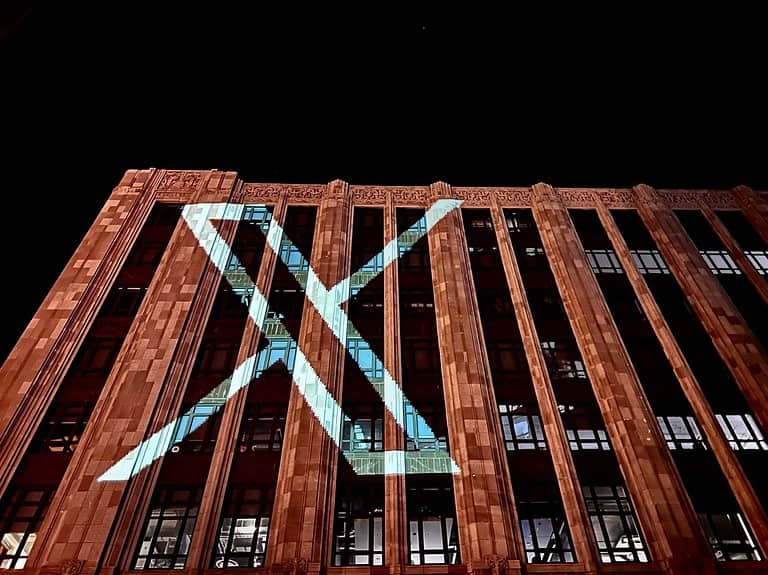Twitter is due for a rebrand, according to owner Elon Musk. It will henceforth be known by the name “X.” After already converting Twitter Inc’s name to X Corp in April, the social media platform itself now appears to be undergoing the transition.
It has long been known that Elon Musk has a very ambitious vision for Twitter. Following China’s WeChat model, he wants to turn the platform into an “everything app,” with further speculation as outsiders as to what exactly that means. In WeChat’s case, the applications are vastly expanded: everything from instant messages to payments to playing games. It is a central pillar of online communications in China.
On display at the company’s headquarters is the new “interim” logo (see image). CEO Linda Yaccarino also seemed to confirm the name change.
Radical change
Anyone following Twitter’s policies since Musk’s takeover late last year has seen a lightning-fast succession of changes in direction and turmoil in their wake. For example, he refused to make all kinds of payments to cloud providers and to transfer rent for various office buildings. In addition, advertisers fled after it turned out that content moderation on the platform was rather permissive.
Tip: Why isn’t Twitter paying its bills?
Regarding competition, things have changed quite a bit in recent times. Threads by Meta launched with an explosion of signups, even without an EU presence. That platform behaves a lot more like the Twitter we’ve always known until now, with simple short posts as its central focus.
Will this work?
Threads’ success shouldn’t be overstated, however: after the record speed with which new signups came along, it was immediately followed by a large-scale departure from the very young platform. A portion of these users will thus also have returned to Twitter’s familiar territory. However, it remains to be seen what will happen in the future.
Earlier, it became clear that Twitter’s API would no longer be free. The paywall in its place was immense, from which one may conclude that almost no one will invest in it. With this context in mind, it is not too strange that Musk is now revolutionizing the platform’s core identity, with perhaps an entirely new revenue model. That does seem to come at the expense of the ubiquitous name recognition of Twitter and the tweets appearing on it.
After all, the path taken by the new “X” is risky. Twitter became so successful precisely because of its simple setup: 140 characters, one timeline, and no real restrictions beyond that. It was born in an era when smartphones and apps were in their infancy. Nowadays, a far grander “everything app” concept will have to be able to beat alternative solutions on all fronts.
